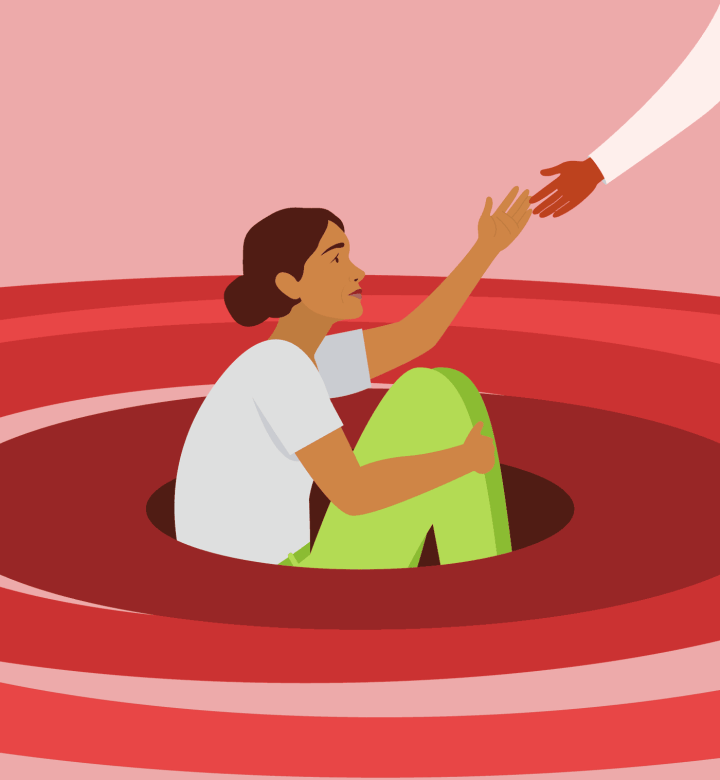By Jess Berthold

Eating disorders affect more than 5% of young people, and they have one of the highest mortality rates of any mental illness.
Young patients with public health insurance have a much harder time accessing care, and they often get caught in a revolving door of hospital stays.
Researchers at UC San Francisco wondered if the cycle could be disrupted by giving outpatient therapy in the months after a first hospitalization. They examined data from 920 California Medicaid enrollees ages 7 to 18 years old who had been hospitalized with an eating disorder.
These young patients received on average just two outpatient therapy sessions after leaving the hospital; 45% received none at all. Therapy, when delivered, was provided by community-based clinicians rather than specialty clinics.
What they discovered
Those who received eight or more therapy sessions were 25 times less likely to be readmitted than those who received three or fewer sessions. Outpatient providers don’t need to be specialists or experts in eating disorders to help young people with these conditions stay out of the hospital.
California’s Medicaid program (Medi-Cal) would save more than $7 million annually in rehospitalizations alone if adolescents could access eight or more sessions of outpatient therapy after hospital discharge for eating disorders.
Why it matters
Hospitalization can be especially challenging for families on Medicaid. “Caregivers are more likely to be single parents with less flexible work schedules and fewer financial resources to cover out-of-pocket expenses,” said first author Megan Mikhail, PhD.
“The findings suggest a modest amount of outpatient therapy from any type of provider can help break the cycle of repeat hospitalizations,” said senior author Erin Accurso, PhD.
Other Authors: Amanda Downey, MD, of UCSF; Kate Duggento Cordell, PhD, of Mental Health Data Alliance; Lonnie Snowden, PhD, of UC Berkeley.
Funding and Disclosures: Accurso has consulted with Partnership HealthPlan of California. This study was supported by the Deb Family and a grant from the National Institute of Mental Health (NIMH K23 MH120347; ECA).
Read the study
About UCSF Psychiatry and Behavioral Sciences
The UCSF Department of Psychiatry and Behavioral Sciences and the Langley Porter Psychiatric Institute are among the nation's foremost resources in the fields of child, adolescent, adult, and geriatric mental health. Together they constitute one of the largest departments in the UCSF School of Medicine and the UCSF Weill Institute for Neurosciences, with a focus on providing unparalleled patient care, conducting impactful research, training the next generation of behavioral health leaders, and advancing diversity, health equity, and community across the field.
UCSF Psychiatry and Behavioral Sciences conducts its clinical, educational, and research efforts at a variety of locations in Northern California, including the UCSF Nancy Friend Pritzker Psychiatry Building; UCSF Langley Porter Psychiatric Hospital; UCSF Health medical centers and community hospitals across San Francisco; UCSF Benioff Children’s Hospitals in San Francisco and Oakland; Zuckerberg San Francisco General Hospital and Trauma Center; the San Francisco VA Health Care System; UCSF Fresno; and numerous community-based sites around the San Francisco Bay Area.
About the UCSF Weill Institute for Neurosciences
The UCSF Weill Institute for Neurosciences, established by the extraordinary generosity of Joan and Sanford I. "Sandy" Weill, brings together world-class researchers with top-ranked physicians to solve some of the most complex challenges in the human brain.
The UCSF Weill Institute leverages UCSF’s unrivaled bench-to-bedside excellence in the neurosciences. It unites three UCSF departments—Psychiatry and Behavioral Sciences, Neurology, and Neurological Surgery—that are highly esteemed for both patient care and research, as well as the Neuroscience Graduate Program, a cross-disciplinary alliance of nearly 100 UCSF faculty members from 15 basic-science departments, as well as the UCSF Institute for Neurodegenerative Diseases, a multidisciplinary research center focused on finding effective treatments for Alzheimer’s disease, frontotemporal dementia, Parkinson’s disease, and other neurodegenerative disorders.
About UCSF
The University of California, San Francisco (UCSF) is exclusively focused on the health sciences and is dedicated to promoting health worldwide through advanced biomedical research, graduate-level education in the life sciences and health professions, and excellence in patient care. UCSF Health, which serves as UCSF’s primary academic medical center, includes top-ranked specialty hospitals and other clinical programs, and has affiliations throughout the Bay Area.





